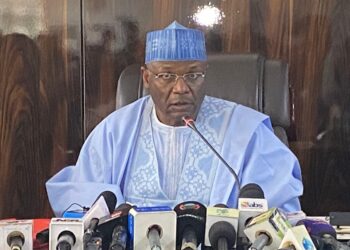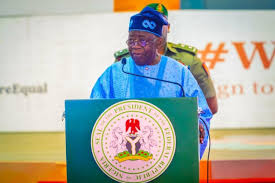By Moses John
Abuja
Strong criticism has continued to greet the recently reported plan of governors to dump the N18,000 minimum wage which they claimed was imposed on them, with the Senior Staff Association of Nigerian Universities (SSANU), describing same as unreasonable.
Last week, the governors under the aegis of the Governors Forum, declared that following the steady drop in prices of oil, they may not be able to cope with huge wage bill occasioned by the minimum wage ‘imposed’ on them.
But in a very quick response, both Governor Adams Aliyu Oshiomhole of Edo state and the Nigeria Labour Congress, strongly attacked the comment, arguing that more than any other thing, corruption was responsible for the present economic mess the country faces and not the minimum wage bill.
While Oshiomhole further argued that the current minimum wage was even long overdue, labour warned that any attempt to reverse the current wage system will be forcefully resisted because it has the backing of the law.
Joining the fray yesterday, National President of SSANU, Comrade Samson Ugwoke, while speaking at the association’s 1st Quadrennial Delegates Conference at the University of Nigeria, Nsukka (UNN), Enugu state, said government must think beyond oil and diversify to boost the nation’s economy.
He said: “The current wage is no longer sustainable, because Nigerian workers are living on credit system where they take loan from co-operative societies to solve immediate family problems, leaving them with nothing to go home with at the end of the month as the loans are always deducted at source.”
He added that the issue of payment of the minimum wage and review for a better one was not negotiable, stressing that government must consider agro-based initiatives as a means to having additional sources of revenue apart from oil.
“The issue of minimum wage is non-negotiable; we are talking about reviewing of the wage due to inflationary rate. The present wage cannot even take workers home, because workers are living on a credit system where workers take money from the co-operative society.
“At the end of the month, the money is deducted from source, leaving them with nothing to take home. So, any governor that is saying he cannot pay minimum wage is not being reasonable.”
On the economy, the SSANU appealed that necessary measures should be put in place “so that the Nigerian masses would not be used as scapegoats.”
He regretted the situation where industries were reducing workforce owing to epileptic power supply, stressing that “this has led to increasing poverty level which has negative effect on the workers.”
“Industries will sack their workers sooner or later because there is no power; the power level is still low. An economy that is generator-based cannot guarantee companies to produce at 100 percent.
And who are those suffering this? It is the workers.
“So, if a business man cannot make profit, he will reduce the workforce and these people will become unemployed, thereby increasing the poverty level in the country. So, government must look at the economy, we must go agro-based; we are blessed with abundant arable land, including six to ten months rain.
“So, why can’t we feed ourselves and other African countries, when we also produce quality graduates, export them for money, the economy will be boosted. A situation where Chinese vulcanisers will come to Nigeria and be called Engineers is not acceptable.”
In a solidarity massage, General Secretary of the Non-Academic Staff Union of Educational and Associated Institutions (NASUEAI), Comrade Peters Adeyemi, stressed the need for unions to collectively fight the introduction of neo-liberal approach to industrial relations in the university system.
He said: “At the heart of neo-liberal approach to industrial relations is deregulation of collective bargaining; limited intervention of the state in industrial relations and encouragement of individualism as against collectivism.
“Central in the collectivism approach to industrial relations is collective bargaining, where workers are represented by their unions and collective agreements entered into by parties are implemented.
“Workers’ living standard is not determined only by the size of their packages, but also by the quality and affordability of public services like education, healthcare, transportation, power, roads and so on.”
On the poor funding of the education sector, Adeyemi said “the capitalists ruling class has abandoned adequate funding of public educational institution because their children no longer attend them.”
“Such ruling class whether in public service, politics or business are now involved in medical tourism overseas after which they conspire to neglect the funding of our public healthcare.”



